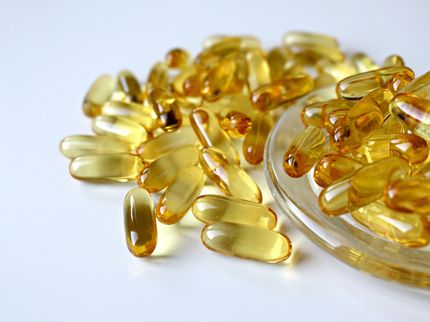Cytochroma announces positive Phase 1/2 results for CTAP101 capsules in non-dialysis chronic kidney disease patients
Advertisement
Cytochroma announced positive Phase 1/2 results for CTAP101 Capsules, a product being developed to treat secondary hyperparathyroidism (SHPT) associated with vitamin D insufficiency in non-dialysis chronic kidney disease (CKD) patients. The study demonstrated that a single dose of CTAP101 Capsules was safe, effective and well tolerated. The study also demonstrated that the mechanism to lower intact parathyroid hormone (iPTH) levels in CKD patients with vitamin D insufficiency is more complex than simply boosting blood vitamin D levels.
"We have gained significant new insights into the treatment of secondary hyperparathyroidism associated with low blood vitamin D levels in patients with chronic kidney disease," stated Dr. Charles W. Bishop, Cytochroma's President and Chief Executive Officer. "We are pleased to see that a single dose of CTAP101 Capsules resulted in reliable improvement of vitamin D status with meaningful and sustained suppression of elevated intact PTH. Intravenous delivery of the same active ingredient did not lower intact PTH despite restoration of blood vitamin D to adequate levels. The lack of effect of intravenous delivery is consistent with the recent body of evidence built up by Cytochroma's applied research team indicating that mega-doses of vitamin D, the current standard of care for SHPT associated with vitamin D insufficiency, is inefficient and only sporadically effective. Based on the results of this Phase 1/2 study, Cytochroma is looking to advance CTAP101 Capsules into a larger repeat-dose Phase 2 study in CKD patients as rapidly as possible."
The completed trial was a randomized, open-label, single-dose study to evaluate the pharmacokinetics, pharmacodynamics, safety and tolerability of two different oral doses of CTAP101 Capsules and an intravenous dose of the same active ingredient. Twenty-eight patients with stage 3 or 4 CKD were treated in the study having endpoints of blood vitamin D levels, adverse events, physical and clinical laboratory assessments, and changes in serum calcium, phosphorus and iPTH.
The results showed that a single dose of CTAP101 Capsules achieved normalization of mean blood vitamin D levels and a sustained, clinically important reduction in serum iPTH levels. A comparable reduction in iPTH levels was not observed in the group receiving intravenous therapy despite an immediate and greater increase in blood vitamin D levels. Mean serum calcium and phosphorus levels remained in the normal range in all three treatment groups throughout the study. There were no serious adverse events during the study.




















































